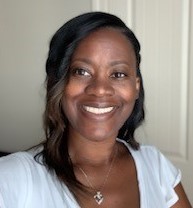Online learning provides a great pathway
for students in varied circumstances to advance their education – to connect
with content and engage with instructors and peers. But a predominantly
asynchronous learning environment puts limits on that experience. As online
instruction and distance learning platforms attempt to keep up with the
advancements of technology, it is crucial that students have access to multiple
learning resources to ensure success in meeting their educational goals.
One
of the strategies for promoting student success and more meaningful
conversations through online courses includes live chat sessions. Ultimately,
the goal is to enhance the learning process so that students can gain the
motivation and drive that they need to continue their online education. This,
in turn, will guide the student in becoming successful in their educational
journey. Implementing Live Learning sessions to all sections of a course on a
weekly basis will assist students in understanding current and upcoming assessments,
not only from the professor, but also from students in later weeks of the
course.
The
Community of Inquiry framework emphasizes the importance of social presence,
which involves an inclusion of virtual office hours as an additional learning
source for students. Offering weekly “live learning” video sessions as an
additional resource within asynchronous online college courses will increase
course satisfaction and learning of the course concepts, thereby, increasing
the likelihood of student success and retention.
Since
April of 2020, faculty within the Academic Engagement Center have been offering
optional live learning sessions. And while the required Live Learning sessions
in GEN103 were a direct result of insights and research conducted by this
group, those sections are not monitored as part of this research. Data is
collected and collated on a number of points – reflecting a deeper picture of
the student and their needs.
The
outcome will determine if weekly “live learning” sessions can positively impact
student achievement and satisfaction. It will also provide insights about how
course levels, sequencing, and session schedules may help students access this
“live learning” opportunity.
The Professors Leading the Research:
Over the course of her career, Dr. Sonja Bethune has
worn many hats in a variety of settings as an educator, administrative manager,
as well as a mental health provider. She is a licensed Clinical Psychologist in
the State of California in which she has served the mentally ill population in
different capacities. However, for the past 10 years, she has been a dedicated
professor, course content developer, and supportive colleague for different
projects, while overseeing the General Education Capstone course at the
University of Arizona Global Campus (previously known as Ashford University). She has demonstrated her passion for teaching through
various scholastic accomplishments in which she co-authored a book that focuses
on teaching strategies for online instructors. She also co-authored and
published a journal article that centers on implicit bias within the online
classroom. Furthermore, she has written psychology-related articles for the
UAGC Hub Newsletter that emphasize ways of improving one’s mental well-being.
Dr. Nathan Pritts is an award-winning educator, course
developer, and faculty mentor with a strong focus on innovation with practical
applications. He brings expertise in writing, business communication,
advertising & marketing, and online user experience to the General
Education classroom to maximize student learning and heighten engagement,
infusing curriculum with foundational outcomes bolstered by clear ties to a
student's academic and career path. He serves as Professor in the Academic
Engagement Center of the University of Arizona Global Campus. Dr. Pritts is the
author or co-author of twelve books including Decoherence (Indiana
University Press), Film: From Watching to Seeing (3e), Essentials of
Academic Writing (4e), and he served as editor and wrote the introduction
for Living Online: A Digital Fluency Handbook.






